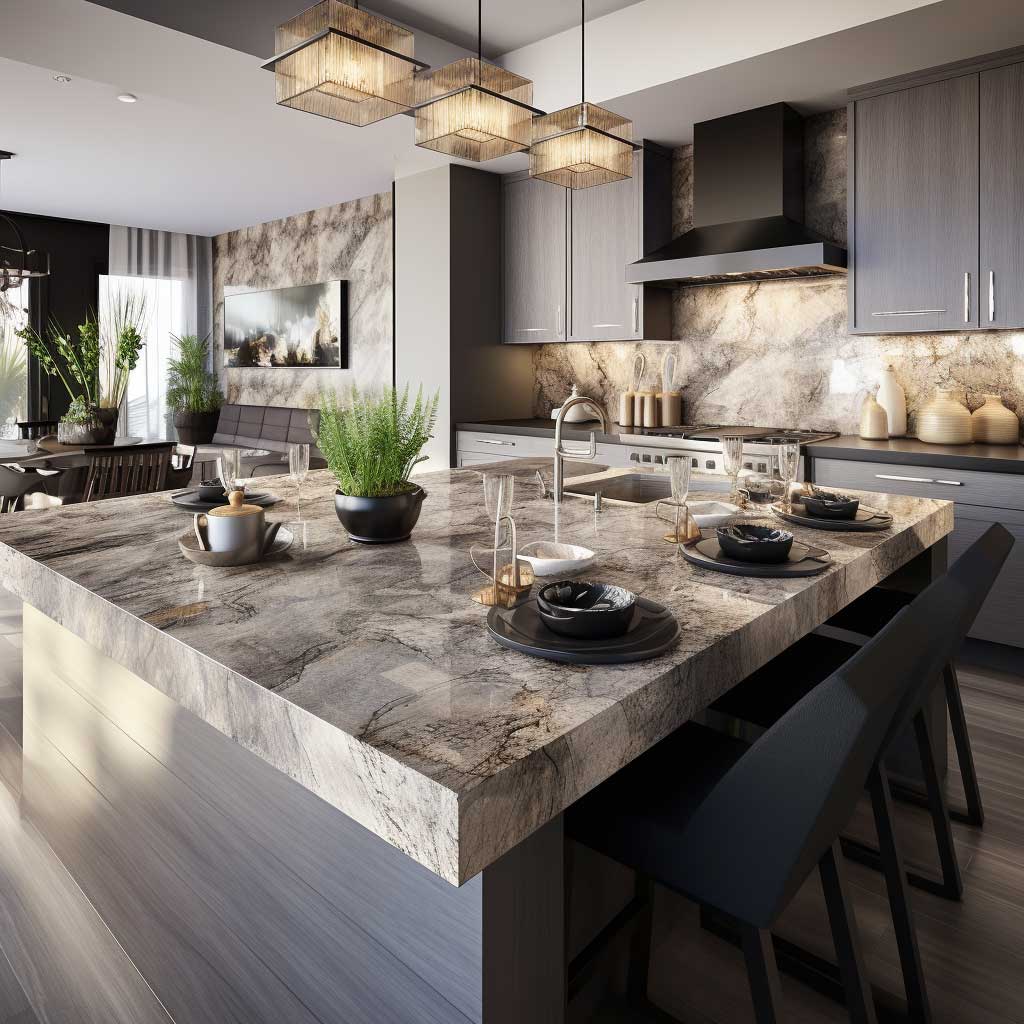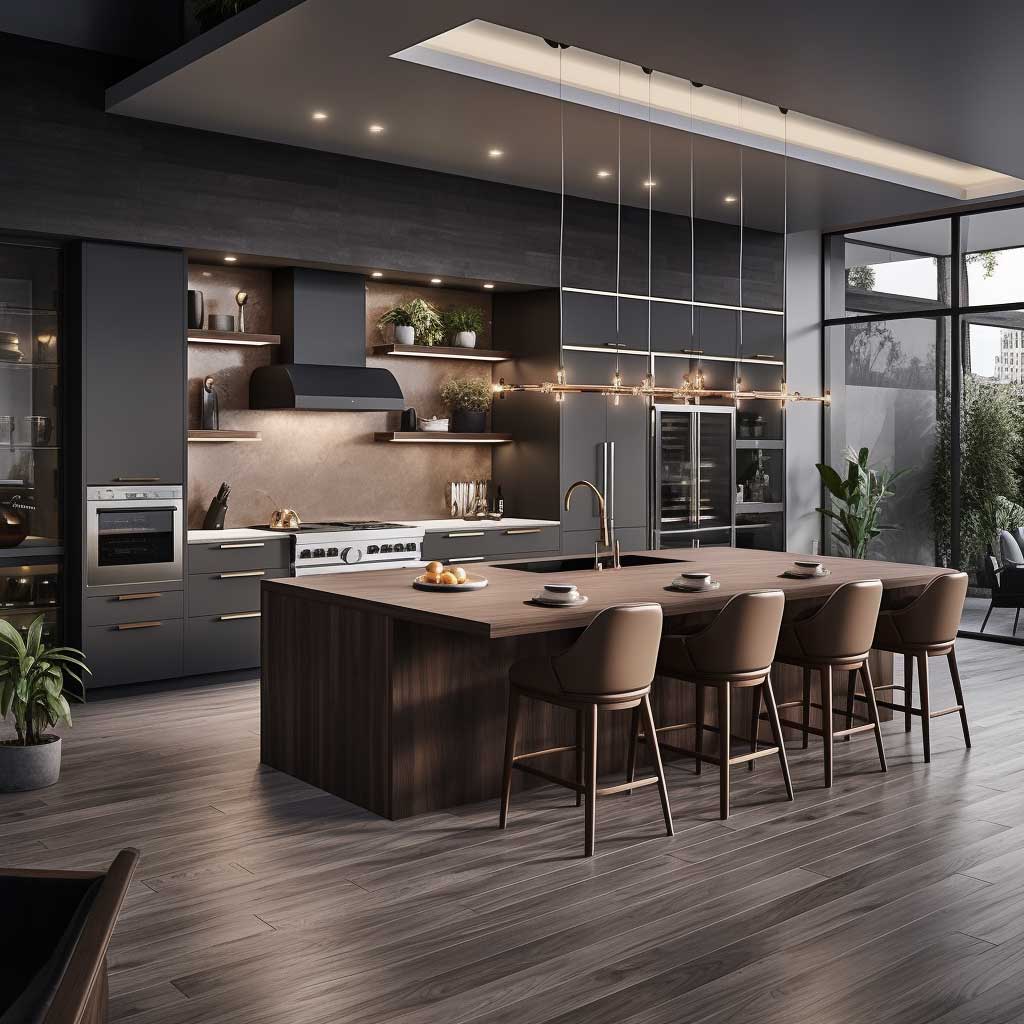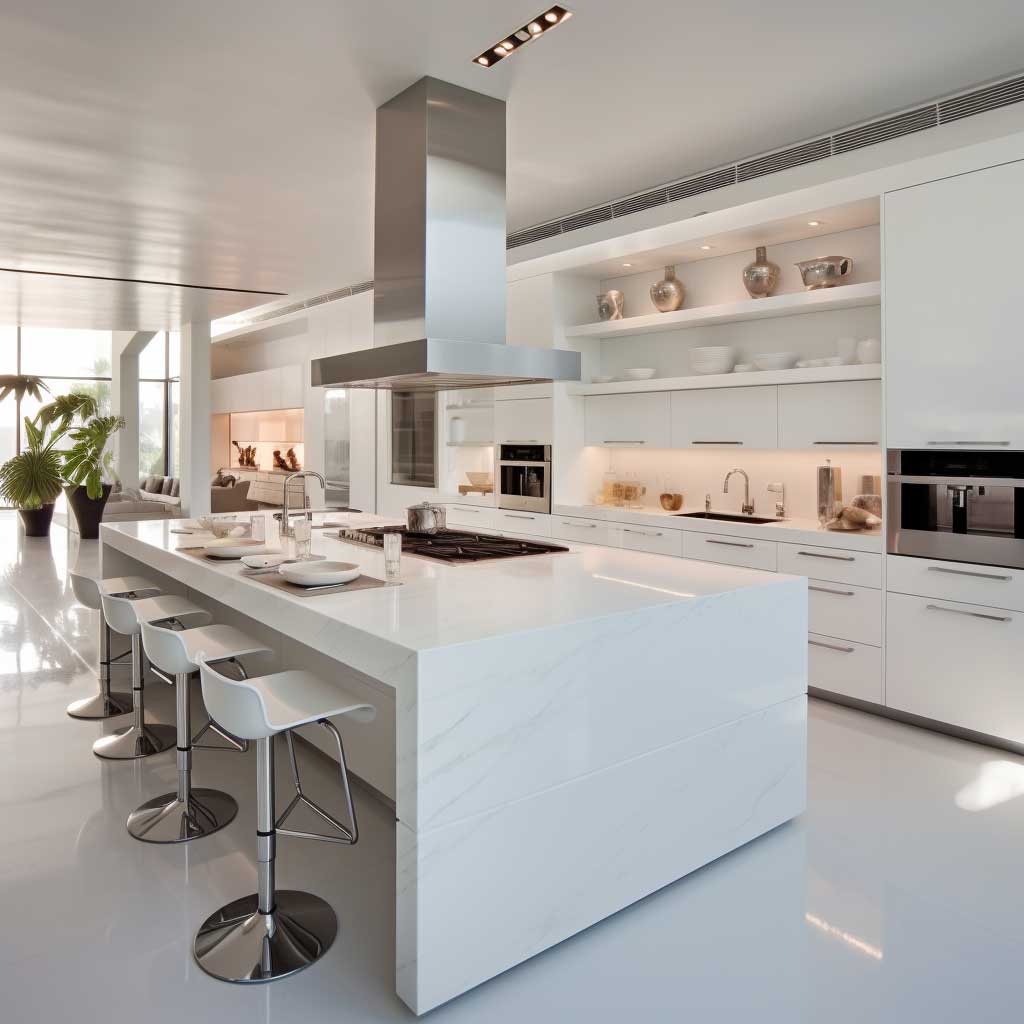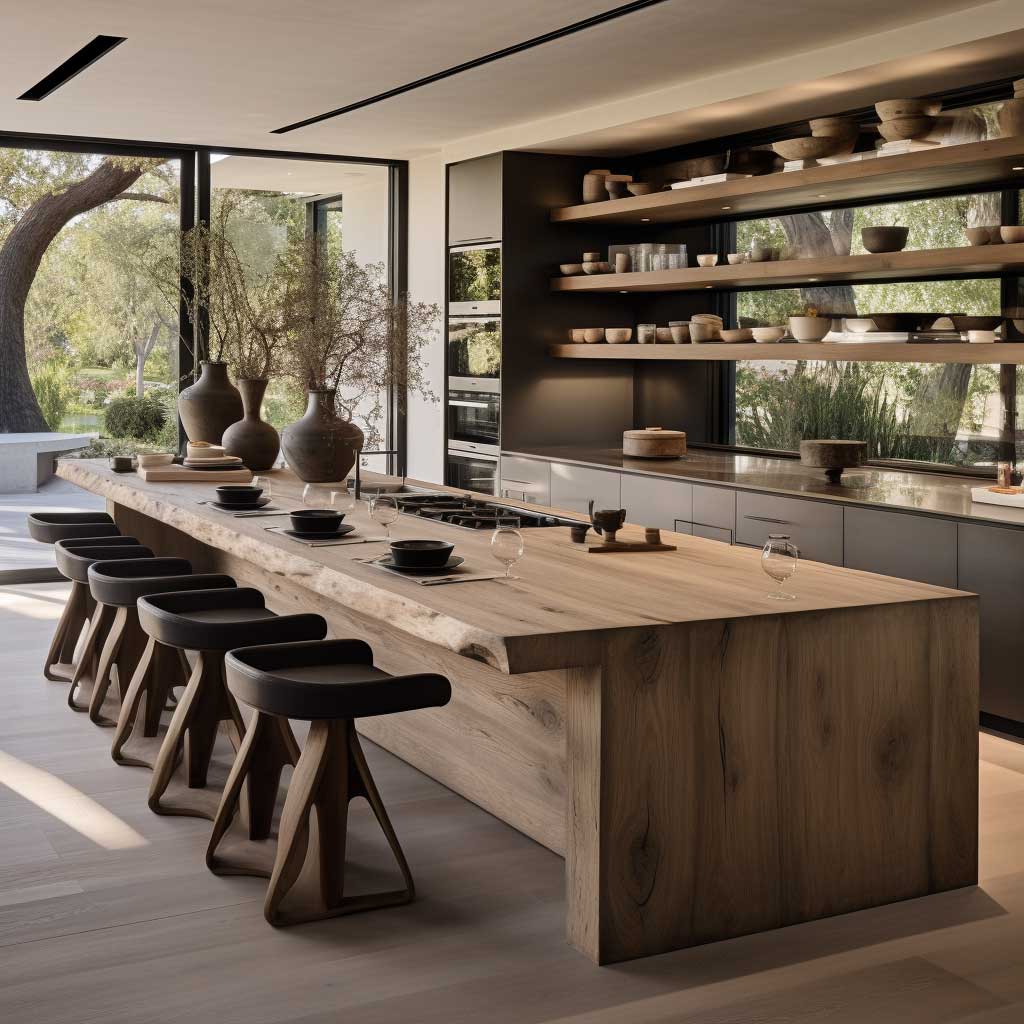The heart of every home, the kitchen and dining room, have undergone significant transformations over the years. As we stand on the cusp of a new era in interior design, it’s fascinating to envision the future of these essential spaces. With the rise of technology, sustainability, and a renewed focus on functionality, modern kitchen and dining room design is set to break traditional boundaries, offering homeowners innovative and efficient solutions that cater to contemporary lifestyles.
Sustainable Materials Shape Modern Kitchen and Dining Room Design




In the realm of interior design, the modern era has ushered in a wave of innovation and creativity. One of the most significant shifts we’ve observed is the emphasis on sustainability, especially in the modern kitchen and dining room design. As homeowners become increasingly conscious of their environmental footprint, the demand for sustainable materials in these spaces has skyrocketed.
The kitchen, often dubbed the heart of the home, has always been a hub of activity. From cooking meals to hosting gatherings, its design and functionality play a pivotal role in our daily lives. With the rise of the sustainability movement, designers and homeowners alike are seeking ways to incorporate eco-friendly materials without compromising on aesthetics or functionality.
One of the primary ways sustainability has influenced modern kitchen and dining room design is through the choice of cabinetry. Gone are the days when wood from endangered forests was the go-to material. Today, bamboo, a rapidly renewable resource, has emerged as a popular alternative. Not only is it durable and versatile, but its unique grain also adds a touch of elegance to any space.
Countertops, too, have seen a green revolution. Materials like recycled glass, quartz, and even paper composite are making their way into modern kitchens. These materials, sourced responsibly and designed to last, offer a blend of beauty and resilience.
Flooring is another area where sustainable materials are making a mark. Cork, for instance, is not only eco-friendly but also offers a soft underfoot, making it perfect for spaces where one spends a lot of time standing, like the kitchen.
But it’s not just about materials. The very design of modern kitchens and dining rooms is evolving to reduce waste. Modular designs, which allow homeowners to add or remove elements as needed, are becoming increasingly popular. This adaptability ensures that the kitchen can evolve with the family’s needs, reducing the need for frequent renovations.
In conclusion, as the world grapples with environmental challenges, the realm of modern kitchen and dining room design offers a beacon of hope. By embracing sustainable materials and designs, we can create spaces that are not only beautiful and functional but also kind to our planet.
Tech-Driven Innovations Revolutionize Modern Kitchen and Dining Room Spaces




The fusion of technology and interior design has opened up a world of possibilities, especially in the domain of modern kitchen and dining room design. As we stand at the intersection of innovation and functionality, it’s evident that tech-driven solutions are set to redefine how we perceive and use these essential home spaces.
Imagine a kitchen where appliances communicate with each other, optimizing energy usage and ensuring that meals are cooked to perfection. Or a dining room where the lighting adjusts itself based on the time of day and the mood you want to set. These are not glimpses of a distant future but realities of modern kitchen and dining room design.
Smart appliances are at the forefront of this revolution. Refrigerators that can track expiry dates, ovens that can be controlled via smartphones, and coffee machines that brew your morning cuppa as soon as your alarm goes off are just a few examples. These devices not only offer convenience but also enhance efficiency, reducing energy consumption and waste.
The integration of AI and voice assistants like Alexa or Google Assistant has further elevated the modern kitchen and dining room experience. From setting timers and playing your favorite cooking playlist to finding recipes and ordering groceries, these assistants have transformed the kitchen into a tech hub.
Lighting, too, has seen significant advancements. With smart lighting systems, homeowners can adjust the brightness, color, and even patterns based on their needs. Whether you’re hosting a dinner party or enjoying a quiet meal with family, the ambiance can be tailored to perfection.
However, with all these tech integrations, the essence of modern kitchen and dining room design remains rooted in comfort and personalization. It’s about creating spaces that reflect the homeowner’s personality while offering the best of technology.
In conclusion, the future of modern kitchen and dining room design is exciting, to say the least. As technology continues to evolve, it will be fascinating to see how it further enhances our culinary and dining experiences, making them more seamless, enjoyable, and in tune with our modern lifestyles.
Minimalist Aesthetics Define the Future of Modern Kitchen and Dining Room Design

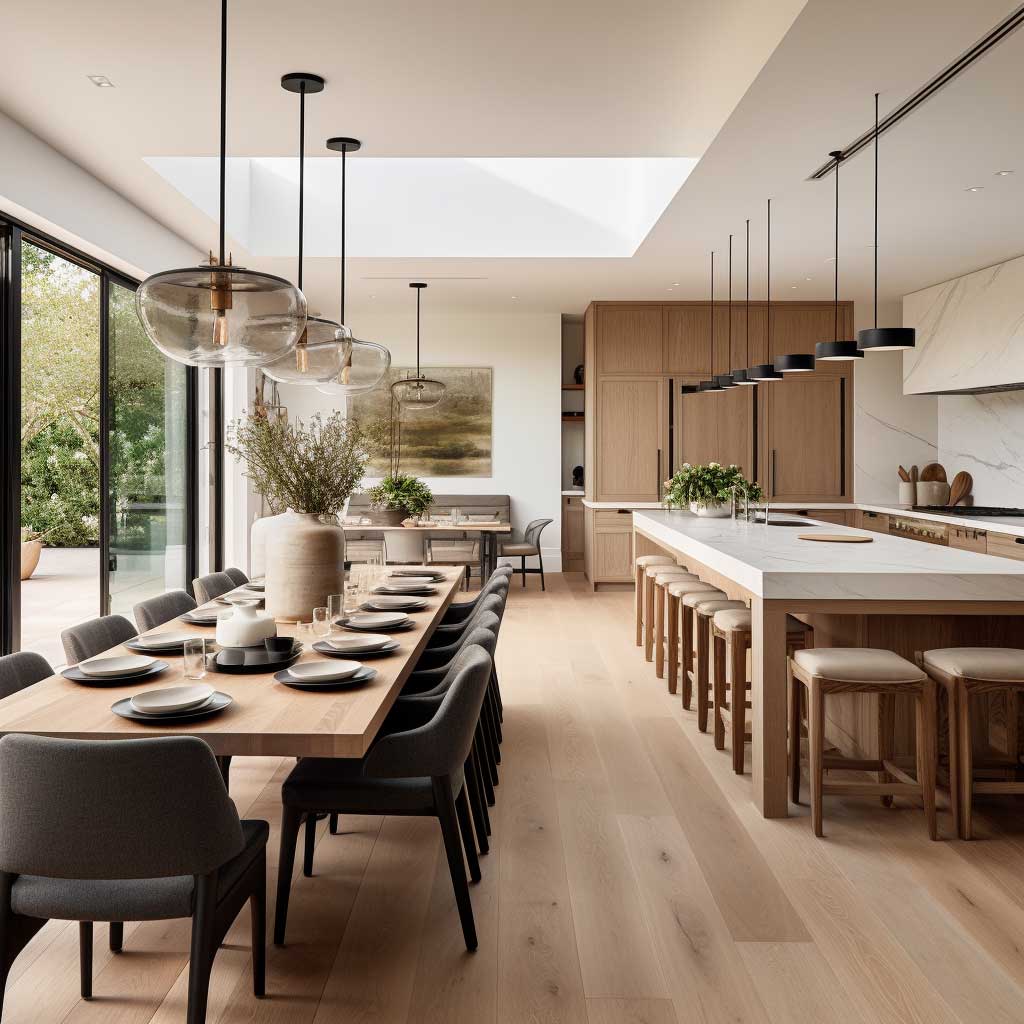

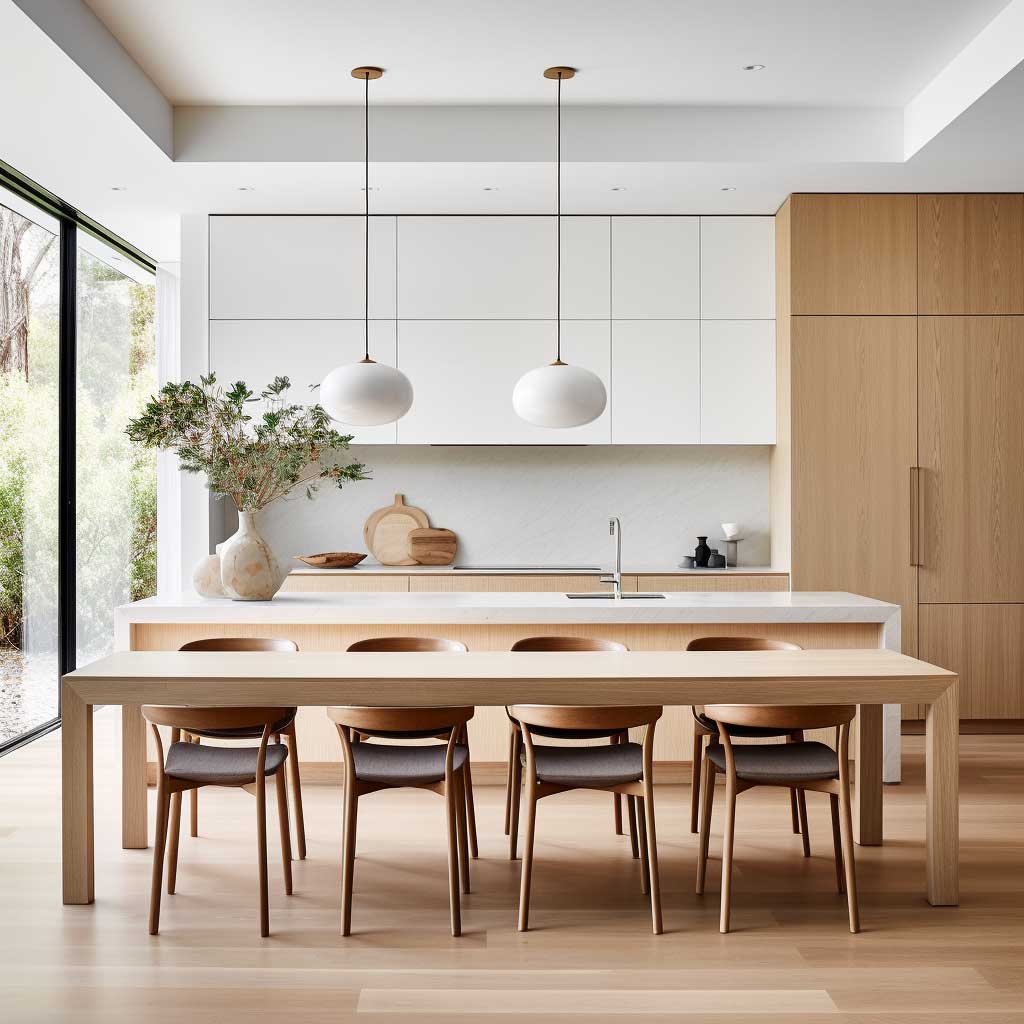
Minimalism, as a design philosophy, emphasizes simplicity, functionality, and the use of essential elements. In the world of modern kitchen and dining room design, minimalist aesthetics have taken center stage, reflecting the contemporary homeowner’s desire for spaces that are clutter-free, serene, and efficient.
The beauty of minimalism lies in its ability to create visually appealing spaces without overwhelming the senses. In the kitchen, this translates to cabinetry without handles, sleek countertops without unnecessary adornments, and a color palette dominated by neutrals. Every element, from the choice of appliances to the type of lighting, is carefully selected to serve a purpose and enhance the overall design.
Dining rooms, too, are seeing a shift towards minimalist design. Gone are the days of ornate furniture and elaborate centerpieces. Today’s dining rooms feature clean lines, simple furniture, and a focus on quality over quantity. The idea is to create a space where the emphasis is on the dining experience itself, rather than the decor.
One of the key principles of minimalist modern kitchen and dining room design is the efficient use of space. With urban homes becoming smaller, there’s a growing need for designs that maximize space without compromising on aesthetics. This has led to the rise of multi-functional furniture, hidden storage solutions, and modular designs that can be adapted based on the homeowner’s needs.
Another defining feature of minimalist design is the emphasis on natural light. Large windows, open floor plans, and reflective surfaces are used to ensure that spaces are bathed in sunlight, reducing the need for artificial lighting and creating a sense of openness.
In conclusion, minimalist aesthetics in modern kitchen and dining room design offer a fresh, contemporary take on these essential home spaces. By focusing on simplicity, functionality, and quality, they create environments that are not only beautiful but also resonate with the modern homeowner’s lifestyle and values.
As we venture further into the 21st century, the fusion of technology, sustainability, and design aesthetics promises to redefine our kitchen and dining spaces. These rooms, once primarily functional, are now becoming statements of our values, aspirations, and the world we envision. The future of modern kitchen and dining room design is not just about style; it’s about creating spaces that resonate with our evolving lifestyles, ensuring both comfort and innovation.

